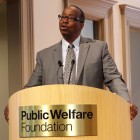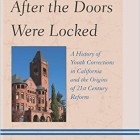
Lost in the System: Girls, Foster Care and the Commercial Sex Trade in L.A. County
|
Hundreds of L.A. children are sexually exploited every year. Experts in the field say it's not surprising that 70 percent of them are in foster care.
Juvenile Justice Information Exchange (https://jjie.org/page/176/)

In late September, Torri was driving down the highway with her 11-year-old son Junior in the back seat when her phone started ringing.
It was the Hamilton County Sheriff’s deputy who worked at Junior’s middle school in Chattanooga, Tennessee. Deputy Arthur Richardson asked Torri where she was. She told him she was on the way to a family birthday dinner at LongHorn Steakhouse.
“He said, ‘Is Junior with you?’” Torri recalled.
Earlier that day, Junior had been accused by other students of making a threat against the school. When Torri had come to pick him up, she’d spoken with Richardson and with administrators, who’d told her he was allowed to return to class the next day. The principal had said she would carry out an investigation then. ProPublica and WPLN are using a nickname for Junior and not including Torri’s last name at the family’s request, to prevent him from being identifiable.
When Richardson called her in the car, Torri immediately felt uneasy. He didn’t say much before hanging up, and she thought about turning around to go home. But she kept driving. When they walked into the restaurant, Torri watched as Junior happily greeted his family.
Soon her phone rang again. It was the deputy. He said he was outside in the strip mall’s parking lot and needed to talk to Junior. Torri called Junior’s stepdad, Kevin Boyer, for extra support, putting him on speaker as she went outside to talk to Richardson. She left Junior with the family, wanting to protect her son for as long as she could ...

Hundreds of L.A. children are sexually exploited every year. Experts in the field say it's not surprising that 70 percent of them are in foster care.
A Senate Judiciary hearing, held this week as part of National Foster Care Month, looked at how jurisdictions across the country are finding ways to help “dual status” or “crossover” youth by sharing information, staff and responsibility for outcomes.

The National Juvenile Defender Center on Monday launched a campaign to improve access to quality legal counsel for juveniles in the lead up to the 50th anniversary of a landmark U.S. Supreme Court ruling.

Think back to yourself at 14 or 15 years old. You’ve just started high school. But you’re not at school now — you’ve been brought downtown for questioning at the police station.

In the Resnick Education Wing 10 floors above the main stages of historic Carnegie Hall, a teenage girl named Breanni stood nervously in front of the crowd.

In California and across the United States, youth corrections systems have often demonstrated an inability to shape their practices to meet children’s actual needs.
I see a person who has a lot of needs that have not been met. I see a person who’s been hurt and tossed around. I see a person who is in a deep black hole and is asking for help. She/he is lost up in the hair, the makeup and looking good.

“Aging is not safe. Aging out leaves kids with sort of a lifetime of potential dire outcomes and loneliness," says Susan Grundberg, executive director and CEO of You Gotta Believe (YGB), a New York City nonprofit organization that focuses on finding permanent families for young adults, teens and preteens in foster care.